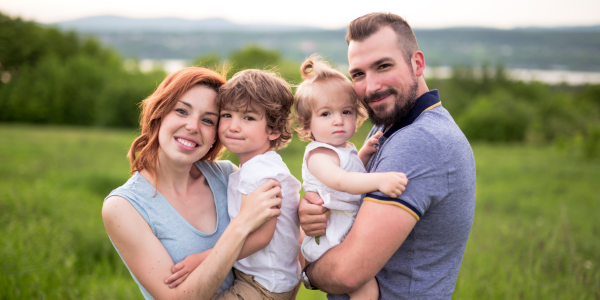Child care licensing helps keep children safe. It makes sure child care programs follow basic health and safety rules so families can feel confident about their child’s care.

Future Providers
Thinking about becoming a provider? Visit our Become a Child Care Provider page to get started.

Current Providers
Find information about licensing, training, quality programs, grant opportunities and more.

Child Care Licensing Portal (CCL)
Use CCL to manage your license—from renewals and staff documents to correction orders and incident reports.
Child Care Licensing FAQs
Who issues child care licenses?
Early Childhood Licensing is responsible for licensing child care programs in North Dakota and are your first contact when applying for a child care license. The team includes:
- Licensing specialists
- Licensing supervisors
- A resource and referral specialist
- A licensing administrator
Who needs a child care license?
Anyone providing care, supervision, education or guidance to children in exchange for money (or other goods or services) may need a license.
A program must be licensed if they care for:
- More than 5 children total, or
- More than 3 children under 24 months old.
A program can choose to become a self-declared provider if they care for:
- 5 or fewer children total, of which no more than 3 are under 24 months old.
What regulations do child care programs need to follow?
Child care programs must follow North Dakota Century Code (law) and North Dakota Administrative Code (rule).
- Laws are formal legal requirements enacted by the legislative assembly and signed by the governor.
- Rules are detailed instructions that explain how providers must meet the requirements of law.
Who needs to have a backgound check?
Background checks are required for child care providers and staff to help ensure the safety of children in care. Background checks must be completed and approved before a person can have unsupervised access to children. They are also updated on a regular schedule to make sure information stays current. Volunteers or support staff that may work unsupervised with children must also complete background checks.
Background checks include:
- 2 national checks
- A fingerprint-based FBI criminal history check
- A search of the national sex offender registry
- 3 in-state checks
- A check of state criminal history records
- A search of the in-state sex offender registry
- A search of state child abuse and neglect records
- 3 out-of-state checks (when the person has lived outside of North Dakota in the past 5 years)
- An out-of-state criminal history check
- A search of out-of-state sex offender registries
- A search of out-of-state child abuse and neglect records
If a person has certain serious criminal convictions or a history of child abuse or neglect, they may not be allowed to work in a child care setting.
These requirements help ensure that children are cared for in safe environments and that families can feel confident about who is caring for their child.
How are programs monitored and what happens if issues are found?
How are programs monitored?
To help keep children safe and healthy, licensing specialists visit each licensed and self-declared child care program at least 2 times each year:
- 1 scheduled (announced) visit
- 1 drop-in (unannounced) visit
These visits check whether programs are meeting health and safety standards.
What happens if issues are found?
If a program is out of compliance with a licensing rule or law, a correction order may be issued. This order tells the provider:
- What the problem is.
- What needs to be fixed.
- How much time they have to fix it.
Program owners or directors can dispute a correction order through the online Child Care Licensing system.
What if a program continues to have issues?
When a child care program continues to have trouble meeting laws and rules, a compliance plan may be put in place to support improvement.
These plans are based on the issues listed in the correction order and may include:
- Simple fixes with minimal support.
- More complex changes that need ongoing help and monitoring.
Each compliance plan is tailored to what the program needs to get back on track.
What information is available to public?
Parents need to know their children are safe while in child care. To help families make informed decisions, we share important safety information about licensed and self-declaration child care programs.
Where can I see a program's monitoring visit results and correction orders?
Use the online child care search tool to view a program's Child Care Licensing Report, including monitoring visit results and correction orders from the past 3 years.
How do I know if children have been injured while in child care?
We track and share the number of serious injuries, deaths and confirmed cases of abuse and neglect that happen each year in child care programs. Visit our data and reporting page view information for the past 3 years.
Does my program need a food license?
Your program does not need a food license if it is:
- In a private home.
- Licensed for 30 or fewer children.
Your program may need a food license if it is:
- Licensed for more than 30 children, and
- In a building that is not a private home.
Before starting any construction or changes to the facility, a program should contact the local food licensing authority to find out what’s required.
Contact a local licensing authority and become a food establishment
How do I report suspected child abuse or neglect?
Child care providers are mandated reporters.
This means suspected child abuse or neglect must be reported right away.
How to make a report
Call the Child Abuse and Neglect Reporting Line:
- 1-833-958-3500
- Relay ND TTY: 711
Hours
- Monday–Friday
- 8 a.m.–5 p.m. CT
- 7 a.m.–4 p.m. MT
The call will be answered by trained child protection intake staff who collect the information and quickly share it with local Child Protective Services (CPS) to help keep children safe.
Important to know
- Calls to local human service zone offices are automatically routed to the statewide reporting line.
- If a child is in immediate danger, call 9-1-1 right away.
Questions? Contact us.
Early Childhood
600 E. Boulevard Ave., Dept. 325
Bismarck, ND 58505-0250
Phone: (701) 328-2115
Toll-Free: (800) 997-8516
Relay ND TTY: 711
Email: dhsec@nd.gov

